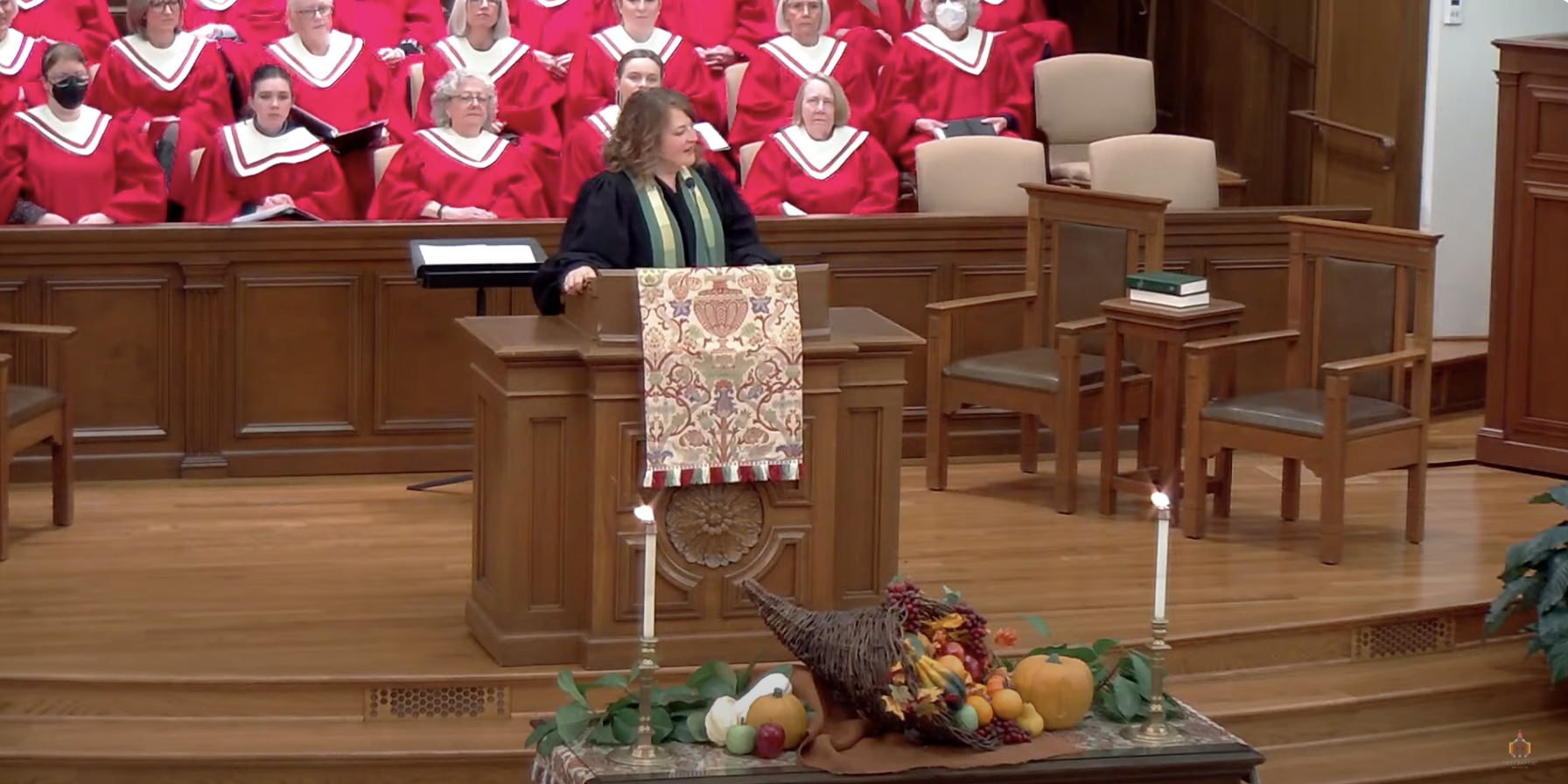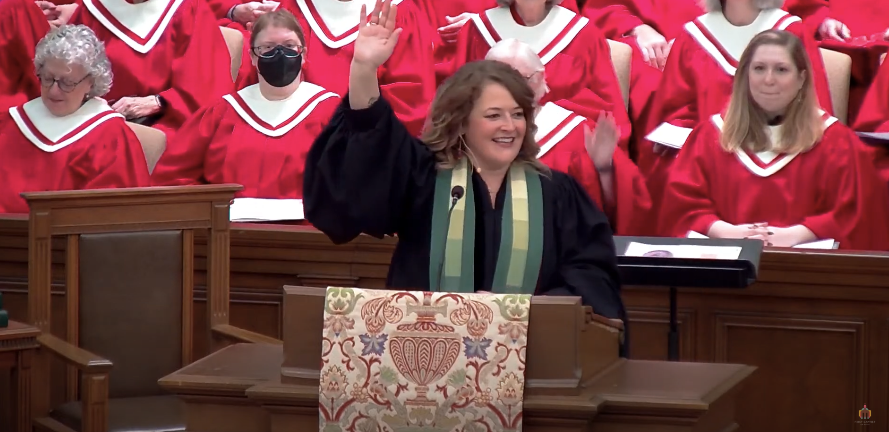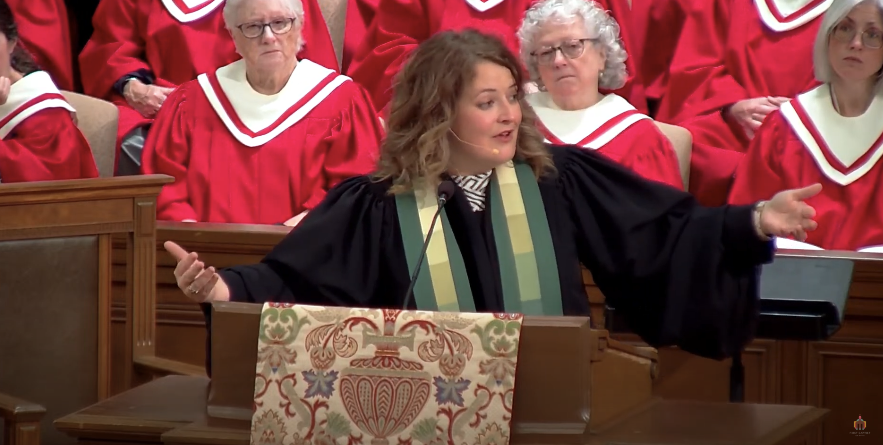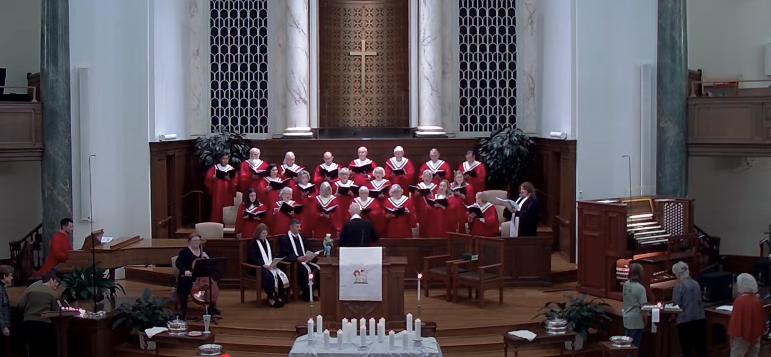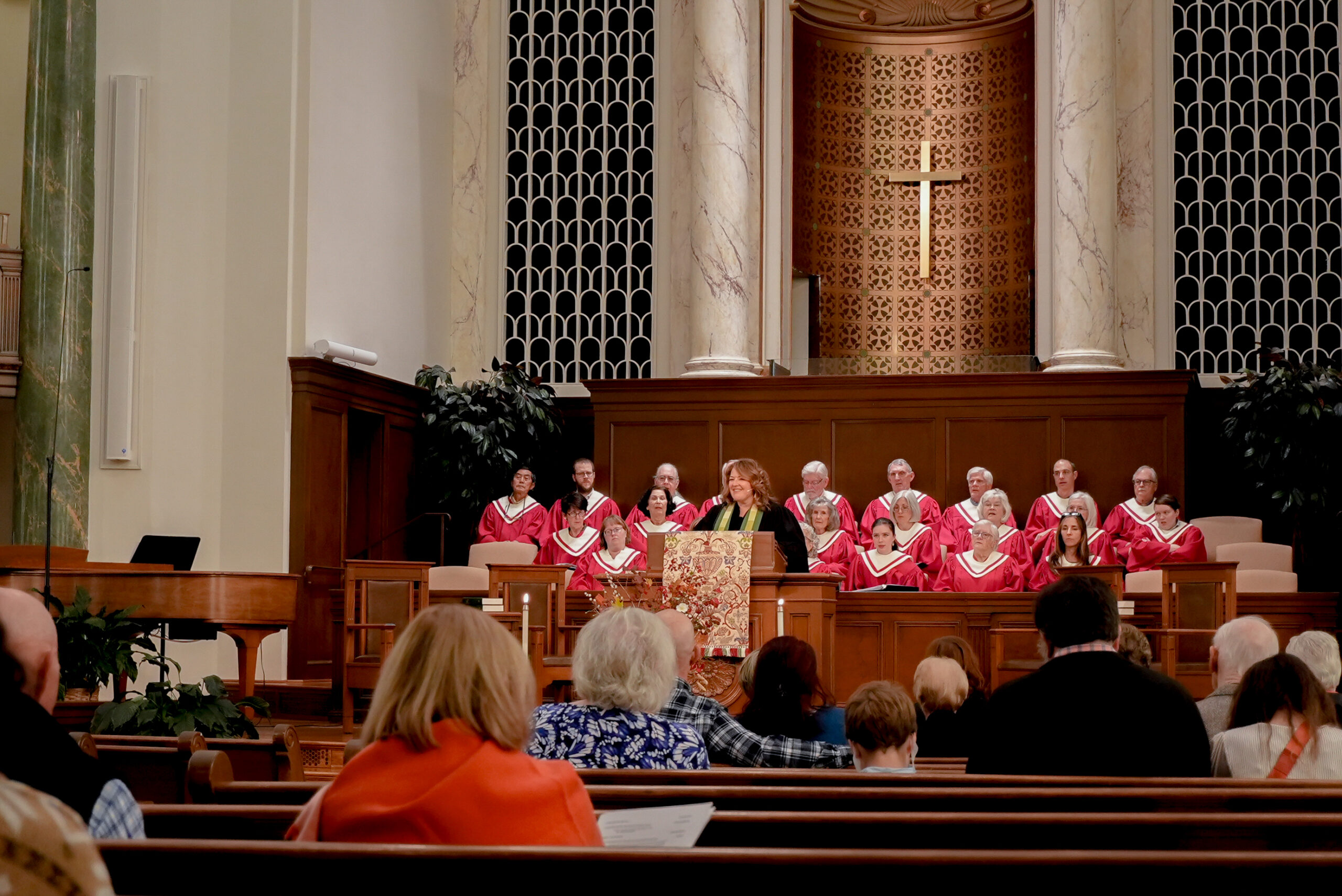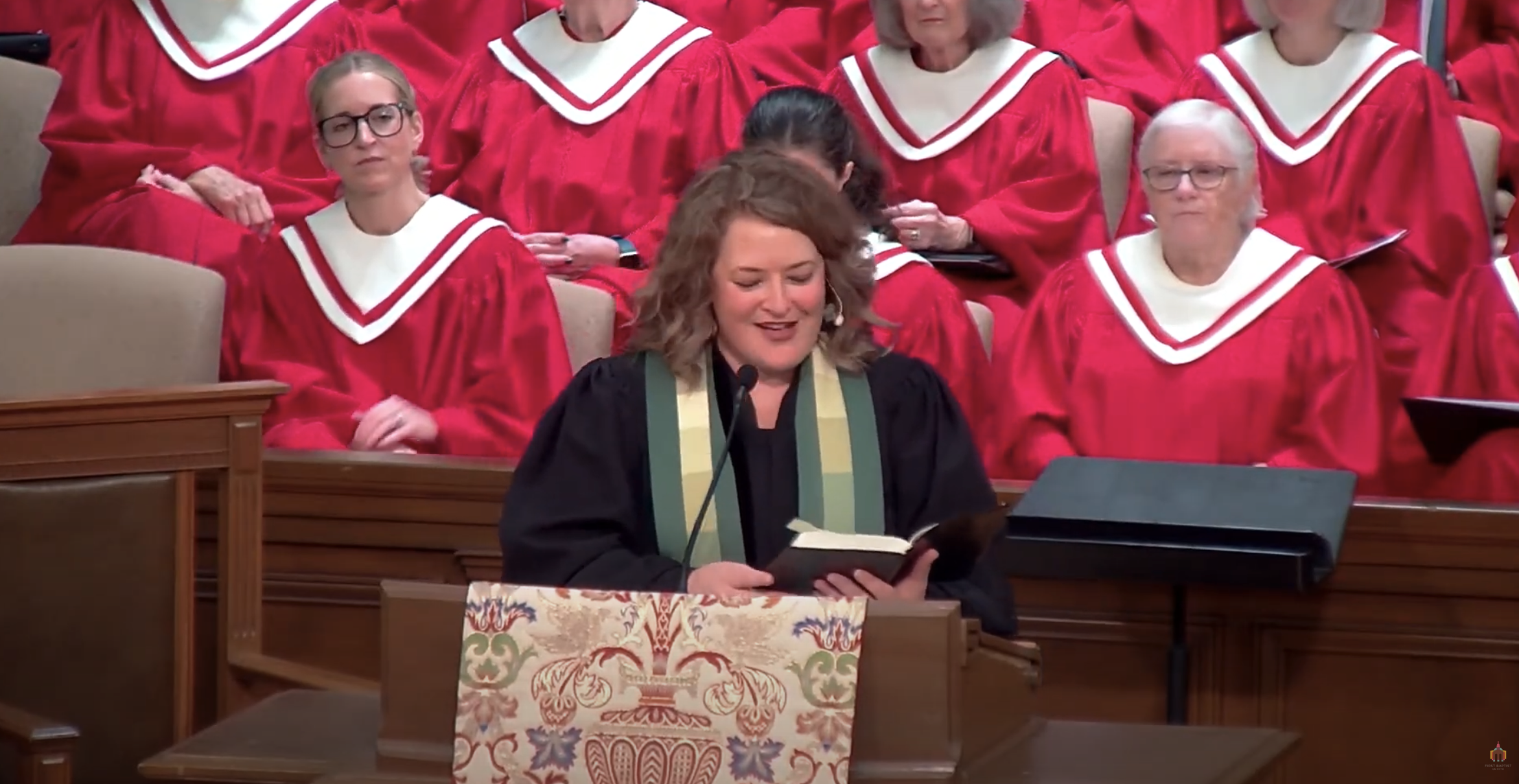I.As the story goes, a little old Jewish lady sits down on a plane next to a big Swedish man and keeps staring at him. Finally she turns to him and says, ‘Pardon me, are you Jewish?’”
“No,” the man says.
A few minutes later she turns to him again and says, “You can tell me, you know – you’re Jewish, aren’t you?”
“I’m telling you, ma’am, I’m not.”
She keeps studying him for a few minutes and then says again, “You know I can tell that you’re Jewish.”
In order to get rid of the annoyance, the man says, ‘Okay, so I’m Jewish.”
She looks at him again, shakes her head, and says, “You certainly don’t look like it.”
And the moral of this story is this: “reality, mostly, is not what it is but what we have decided it is.”1
II.To take this a step further, I wonder: what role do appearances play in making sense of the world around us? How we carry ourselves, dress ourselves, communicate about ourselves in the world constructs a perception of our lives, doesn’t it? When I wear my Tennessee Volunteers sweatshirt, you can reasonably assume that I’m a Tennessee fan. (And let me tell you, yes I am – this year especially!) And this is but one tiny way of countless ways, large and small, that tell the story of who we are. Maybe it’s not your college sweatshirt, but maybe it’s your car, or house, or neighborhood, or job, or wardrobe, or style, or vote, or choice of media, or community, or association, or fanbase, etc. etc. etc. – all these external surroundings work together to construct our appearance in the world. Sometimes we are confused by others’ appearances, how one contradicts another, what they mean. And sometimes we confuse ourselves and think that these external markers make us who we are, that “I am a Tennessee fan” or “I am a Subaru-driver” become metrics of definition, rather than preferences, opinions, or choices. And in this day and age, we don’t just construct our appearance for those we encounter in the flesh. Rather, that blasted internet becomes the stage for us to perform identity and keep up appearances all across the world wide web.
Our appearances aren’t who we are in our heart of hearts. Rather, they’re how we’re seen by the world, maybe even how we see ourselves. Yet regardless of what we’re seen with or where we’re seen, how we’re seen matters, doesn’t it? But simply that we’re seen matters most. That we’re seen means that we have a chance to be known, and that we can be known means there’s even a chance that we can be loved too.
III.We’re talking today about appearances, about being seen and known. I told Earl this morning I was thinking of him while working on my sermon, because every Sunday when I tell him, “it’s good to see you,” he responds, “it’s good to be seen!” We’re in a stretch from the Gospel of Mark where Jesus has come to Jerusalem, and is, of course, challenging what he finds there. He’s cursing fig trees, and turning over tables in the temple, and telling stories of wicked tenants, and withstanding interrogation from religious leaders, and instructing people with this radical idea of loving God and neighbor. Don’t be surprised that he’s angering people left and right! And as our text for today begins, Jesus’s posture continues.
“Beware the scribes” Jesus began, “for they walk around in long robes, enjoy being greeted in the marketplace, and take the best seats in church and at dinner.” In careful detail, Jesus instructs his listeners why they are to beware the scribes – perhaps not the temple crowd’s first inclination! – because at every stage in the scribes’ life, they expected privilege! And status! And keeping up an appearance of power among the people.
How so? “They devour widows’ houses and for the sake of appearance, say long prayers.” (Feeling especially convicted after praying a particularly long-winded one a moment ago!) Meaning: because temple scribes seemed pious and trustworthy, they were often asked to manage the estates of widows. And widows, in a culture where one’s proximity to a man determined their worth, simply were dependent on help when their husband died. In return, the scribes would receive a percentage of the assets as compensation. It was a system notorious for abuse, for swindling, for exploiting vulnerability of one for the gain of another.2 “They – the scribes – will receive the greater condemnation.”
After this warning, Jesus took his seat. He faced the treasury and watched what happened there. One after another, the wealthy came by with their large sums of money. Their coins made a racket, but hers were barely registered. Two small copper coins, Mark tells us, which were the smallest amount possible. Perhaps knowing the fate of exploitation that awaited her, the woman decided to give it all away – maybe in anger, maybe in desperation, maybe in hope. But did she know she was being seen?
IV.Each fall, this text that tells the story of the widow’s offering comes up in the lectionary, providing churches and pastors who are more squeamish about talking money in worship a helpful entry point to talk about stewardship. “The religious elites gave for show!,” the preacher contrasts, “but the widow gave for God – all that she had. So too should we all, best if given to the church by December 31 so it can all get counted, and we can make budget, and you can get these charitable tax deductions recorded before year-end! Let those with ears, listen!” I confess that I have preached that sermon a time or two!
But as compelling as the widow’s actions are and worthy of our consideration, that’s not the sermon for today. Because my eyes keep moving over to Jesus first. In the temple with all the religious leaders watching his every move, he watched her. Where the leaders questioned him, threatened him, judged him, schemed for a way to kill him, Jesus didn’t look at them, he looked at her. He didn’t condemn their scrutiny of him, rather their sin towards others. Where they seemed concerned by the appearances of others, Jesus turned the attention back on them, who, “bask in the glow of public flattery, yet all the time, are exploiting the weak and helpless, particularly the widows! In the end,” Jesus declared, “their condemnation is coming.”
Then he just sat down and watched. Watched the scribes greeted with respect in the marketplace, and the Pharisees and Saduccees act like they owned the place. Watched the religious leaders in their robes. Watched the rich deposit their noisy, showy offering. Watched as the wealthy made a show of what they dropped in. And then there she was, disregarded by everyone but Jesus. Seen as she slipped as far as she could go as a woman into the temple. Seen as she brought all she had. Seen as she silently dropped her pennies into the treasury, now even poorer than before. And not only did Jesus see her, he made sure others did too. He called his disciples over to him, and bore witness to her life. Let’s not put words in his mouth: he didn’t praise her or grieve her, though I would love to know which flavored his perception. Rather, he saw her. He told her story. He made sure she was seen, and that her sacrifice was seen.
Jesus insisted that the disciples understood what she’d done, for as a poor widow who gave the last of her pennies away, what would come next in her life? Would anyone think twice about the two pennies in the jar that was overflowing? Who would consider a gift that cost more to count than what the money could buy? Would anyone realize or care that she now had nothing – no way to live or eat or provide any longer?
“[Her final gesture] won’t make a bit of difference,” Barbara Brown Taylor said, “or at least it wouldn’t have, if she hadn’t had a witness. But she has a witness, who does more than see what she is doing. He also puts words to her desperate act. ‘The others will never miss what they gave,’ Jesus said to his disciples, ‘but she – she gave everything she had to live on. Out of the nothing she had, she gave it all away. He alone can see what she is really doing. She is not just offering up her last two coins. She is offering up her life.’”
This would be Jesus’s last trip to the temple, on what would be the last week of his life. But here, Jesus saw. Here, Jesus knew. Here, Jesus loved. Here, that we’re seen matters most. Because to Jesus, that we’re seen means that we’re known, and when we’re known, we can be loved. Let those with ears, listen!3
V.I’ve told you before the story of Victor Klemperer, professor of literature at the University of Dresden in the years leading up to World War II – an absolute dream job of his. All his life, he’d hoped to write the world’s best book on 18th century French literature. He could see it now: respect in the faculty lounge, autographs at conferences the world over, accolades and clear deference to his knowledge and expertise. Anybody who wanted to talk about 18th century French literature would have to talk about Viktor Klemperer.
But then the Nazis came to power, and began chipping away at Viktor’s life. They took his telephone, then his car. They canceled one of his classes at the university, and then all of them. His typewriter, his house, his cat – gone, taken, robbed from him and millions of other Jews, one right after another. With each indignity, Viktor wrote it down – all of it. He described his deprivations and disrespect, what suffering did to his people – some whose compassion grew, others who tightened and withered in their anger. In May of 1942, the Gestapo conducted a terrifying house search, which, as usual, included vandalism and beatings of all, even the elderly. Viktor wrote again in his diary that if it would be discovered, he’d surely be killed. “But I shall go on writing,” he declared, “I will bear witness, precise witness.” Viktor’s scope had narrowed, and no longer could he write the sweeping narrative he longed to write, not even a big story of Nazi cruelty. He could only tell his story, through his diary, day after day, about the ordinary ways Nazis stripped people of their dignity, right to its last, tattered bits.
In his telling of Victor’s story, Cornelius Plantinga ends with this: “Viktor Klemperer had hoped to write the world’s best account of 18th century French literature. But the Nazis took his life away. Except that, at the end of the day, they didn’t. They couldn’t. The reason is that Viktor Klemperer and his diary survived, and are now celebrated all over the world. Viktor Klemperer’s diary is his distinction. It’s what he’s known for. Klemperer had thought that his glory would be a book about French literature, but the Lord meant his daily diary to be his glory. Klemperer couldn’t stop the Nazis from robbing him, but there was one thing he could do. He could ‘bear witness, precise witness,’ and he could bear it to the end. He was a witness to the truth, and he didn’t know that this would be his glory.”4
VI.Friends, when life together is hard, when you feel the pull to keep up your appearances, or hold onto your privilege, or be tight with your role and status, when you struggle to see those who slip just past your sight or those who meander past your empathy, what would it take to see as Jesus did? What would it take to notice those you’d rather not? What would it take to let what you see and who you see change that you see?
I have to think it starts small. I have to think it starts in each individual heart. Maybe you ask yourself today, who in my life is vulnerable? Who might be feeling overlooked or marginalized? Then send them a text or give them a call to check in. Make a note in your calendar to check in with this person every couple of weeks, and sometime soon, show up for them in person. Then maybe you find someone else and do the same thing. Rinse and repeat.
The next layer might be harder, because now you ask yourself not just “who am I now seeing,” but “who would I rather not see?” Who am I giving the side-eye to? Who am I guarding myself from? Who am I refusing to confront? These folks might take some more inner work, and maybe the most loving thing you can do is to notice them and see them from afar. But what if you spend some time this week bringing them into your heart’s eye and see them: what motivates them, what terrifies them, what broke them, what saves them. Maybe the way you see this week is to pray for your own understanding, or to ask God to help you see what is yours in this relationship to carry and control, and what is not.
For those we don’t see, for those we can’t see, for those we choose not to see, along the way, my prayer for us all is that God changes us from the inside out, that our appearances “out there” reflect our commitments “in here.” May God put people in our path that are impossible to ignore and meaningful to see. May we prioritize the vulnerable as Jesus did. May the Spirit help us keep the faith and have the courage to see. And with all that we have and all that we are, may we trust the God made flesh in Jesus can take our life – our bodies and minds, our hands and feet, our dollars and cents, our eyes and hearts, seen and known and loved – and let it be for God!
Let those who have ears, listen!


